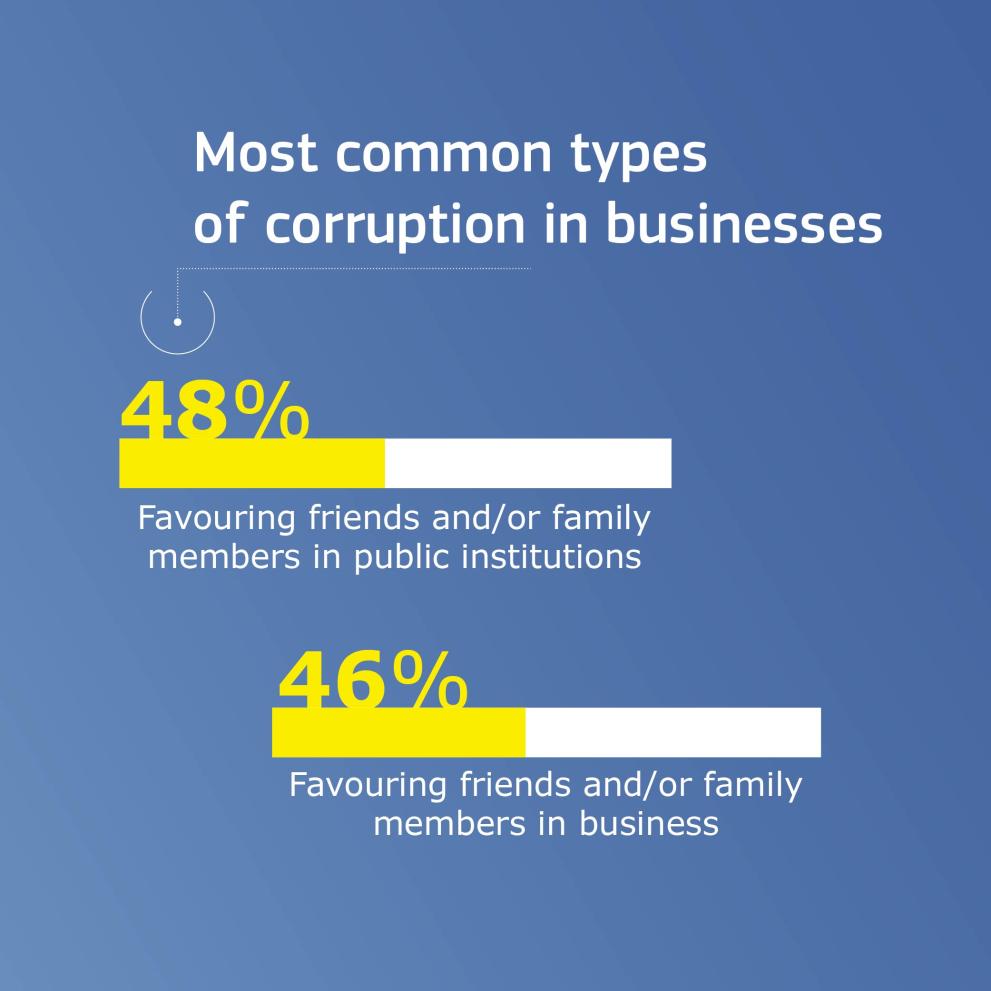
This year’s Eurobarometer surveys on corruption found that 4 in 10 citizens believe that corruption has risen in their country over the past three years, with now over 2/3 (70%) saying that corruption is widespread in their country. At the same time, more than 6 out of 10 (64%) say corruption is unacceptable. The industry agrees: more than 6 in 10 (65%) EU companies think the problem of corruption is ‘fairly’ to ‘very’ widespread in their country. This goes to show that corruption remains a significant challenge in the eyes of most Europeans.
Citizens and businesses alike are increasingly sceptical about
national efforts to address corruption
Only a minority believe that the fight against corruption in their country is effective. Respondents are generally pessimistic about national anti-corruption efforts, and few believe that measures against corruption are applied without ulterior motives (35%). Even less are those who think there are enough prosecutions to deter corrupt practices (32%) or that there is appropriate supervision of political parties’ funding in their country (29%).
Similarly, only a slim majority of companies think it is likely for corrupt individuals to face charges and go to court – 12% said it was ‘very likely’ and 41% ‘fairly likely.’ One in two companies believe that businesses engaging in corruption in their country will be caught or reported, and less than 40% think that they will be heavily fined or imprisoned.
Corruption disrupts the Internal Market
Following the COVID-19 pandemic years, the business world perceives corruption to be growing again. More than 6 in 10 (65%) EU companies think the problem of corruption is ‘fairly’ to ‘very’ widespread in their country. In fact, the percentage of those saying that it is ‘very widespread’ has increased by 4 percentage points (28%) compared to 2022.
Reducing growth, spreading uncertainty, creating additional costs, lowering investment levels – these are only a few of the consequences of corruption on the market.
More than 3 out of 4 company managers (78%) also believe that too close links between business and politics lead to corruption in their country. Another 72% agree that favouritism and corruption are hampering business competition.
Where does the EU stand on this?
The Commission has stepped-up its efforts on the anti-corruption front. The new measures adopted in May 2023, criminalising corruption offences and harmonising penalties across the EU, are expected to enable Member State authorities to prevent and fight corruption more effectively.
The measures are part of the EU’s Anti-corruption package, which also includes a joint communication and a proposal to establish a dedicated Common Foreign and Security Policy sanctions regime that will target serious acts of corruption worldwide.
Keeping an ear to the ground
Dedicated Eurobarometer surveys on corruption were first introduced by the European Commission (EC) in 2007, to explore how corruption is perceived and experienced by European citizens. It was later split into two distinct surveys: one dedicated to citizens' opinions and the other to businesses. In its latest Eurobarometer surveys, the EC surveyed some 26,404 respondents from different social and demographic groups in their mother tongue and interviewed another 12,875 private sector managers. The surveys were conducted between March and May 2023.
Details
- Publication date
- 5 July 2023
- Author
- Directorate-General for Migration and Home Affairs

